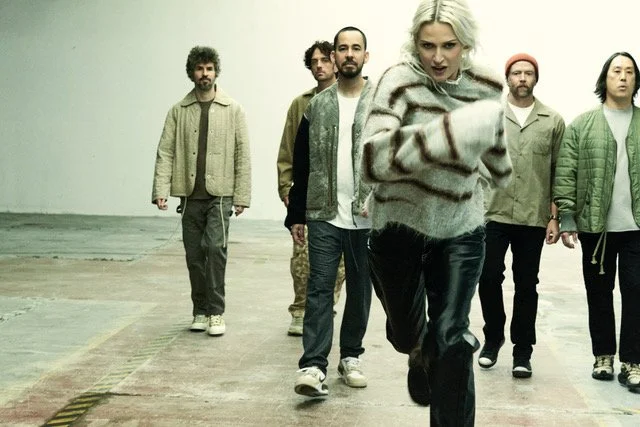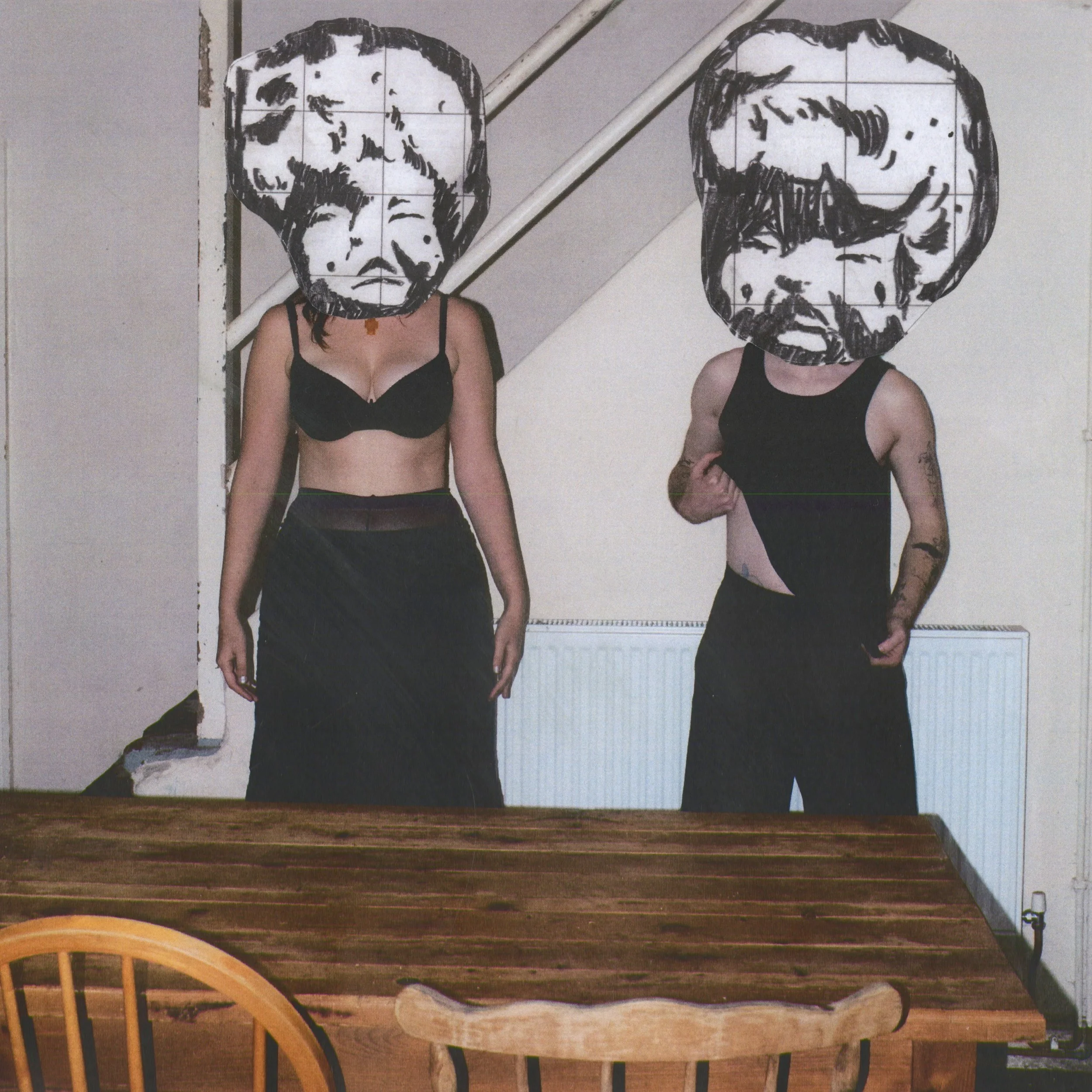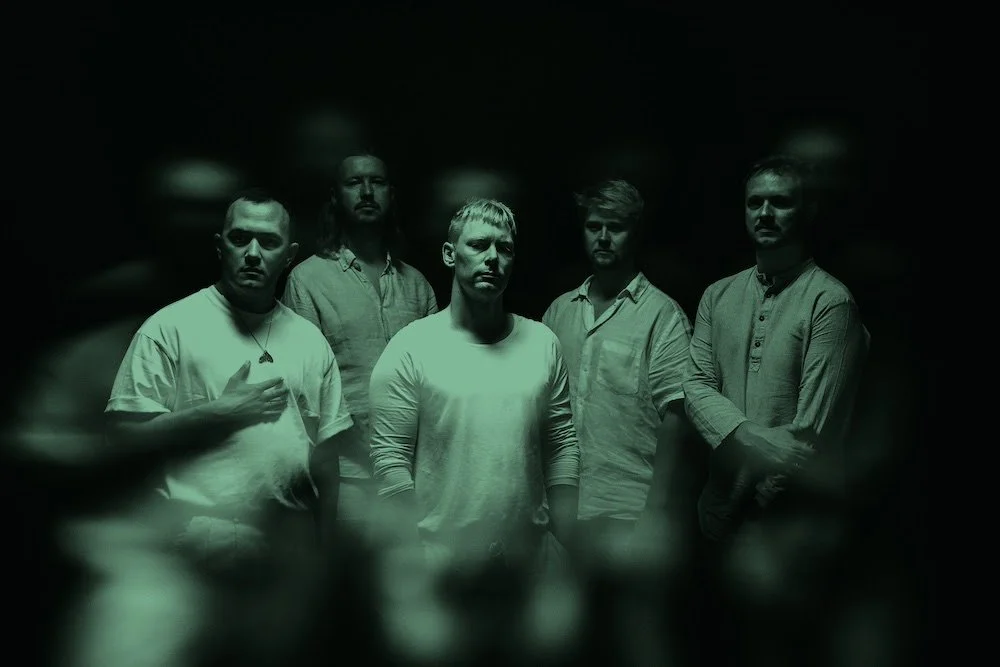Album Review: Linkin Park - 'From Zero'

Linkin Park are back, with an album that works perfectly as both a comeback and a fresh start.
Seven years ago, the metal scene was struck with a loss so significant that it upended pretty much everything. Shortly after the completion of the UK leg of their 'One More Light' tour, it was announced that Linkin Park vocalist Chester Bennington had died. Not only was he one of the most legendary vocalists of his generation, helping to turn the genre of nu metal into a global sensation, but he was also arguably one of the most distinguished and distinct vocalists in modern music as a whole. Just watch the ‘Linkin Park & Friends Celebrate Life in Honor of Chester Bennington’ concert on YouTube, and see how many esteemed guest vocalists it took to even approach his level of raw, achingly emotional talent. And that’s only his professional life; take his personal life into consideration, and he was truly a legendary icon.
All of this is a preface to say that Chester Bennington was and always will be irreplaceable. Both for his iconic style and the larger-than-life shadow he cast over the two decades that he was musically active, he was an unparalleled figure.
So, when Linkin Park announced back in September that they were releasing new music, with a new vocalist in Dead Sara’s Emily Armstrong and a new drummer in Colin Brittain, it sent the music world into a tailspin. “How dare they try and replace Chester”, came the outcry, with some voices a lot louder and generally more garbled than others — though it’s arrogant and frankly impossible to comment on whatever was happening behind the scenes, whether you’re talking about Jaime Bennington’s own issues with the appointment or anyone else who is close to the situation on a personal level.
For the casual listener, however, the situation is a little simpler. No, Chester isn’t replaceable. But, and this is the important part… his music will always be there. Whether through Linkin Park, Grey Daze or Dead by Sunrise, you can listen to it whenever you want. You can’t begrudge a band for, seven years later, wanting to carry on the name and legacy of a band that, for the most part, has been most of their adult lives. Particularly when Linkin Park was never just one man. If anything, the band’s only mistake wasn’t addressing some of the controversy and discourse around the appointment of Armstrong in particular — though again, regardless of who it was, there was always going to be backlash, skeletons dragged out and dug up to crucify whoever dared step into his shoes.
And this brings us nicely to the new album. ‘From Zero’, the band’s eighth album, and a name written as a reference to the group’s original moniker from way back when in 1996, is a great album. It might not tread any new ground, and it might not revolutionise the sound of these new ‘20s, but it doesn’t need to. It almost functions as a soft-launch-cum-new-chapter for the group — it’s both a fresh start, introducing everyone to the band’s new sound with Emily Armstrong at the helm, and also a return to the band’s unceasing need to push their own boundaries, forge their own path. And, from the reaction to their brief, immediately announced (and promptly sold out) world tour, thousands upon thousands of fans as at home screaming along to ‘Numb’ or ‘Crawling’ as they were to new singles ‘The Emptiness Machine’ or ‘Heavy Is The Crown’, that new sound’s been pretty well received indeed.
Immediately after the eponymous, voice-memo-esque intro — quite literally cutting it off mid-sentence — listeners are immediately greeted by their first taste of the new era, the catchy, addictive, aforementioned ‘The Emptiness Machine’; and, as Mike Shinoda’s silken voice kicks in over Brittain’s blood-pulsing drumbeat, each line echoing across the track like some profound declaration, you’re immediately transported back to what’s been missing the past seven years.
And then Armstrong kicks in, grit and anger warring in every snarled word and roared chorus, and suddenly Linkin Park really are back. Different, yes, but still invariably them. It might be closer to the alternative, radio-ready rock style of the band’s later years — though don’t worry ‘Hybrid Theory’ diehards, there’s still more to come — but the track’s indelible, undeniable vitality and sheer catchiness is undeniable.
Second track ‘Cut The Bridge’ is similar, despite trading Armstrong’s spotlight for Shinoda’s, with the frustration fully on show in his verses before the stirring, anthemic, raspy and explosive chorus; as is second single and League Of Legends’ Worlds’ new anthem ‘Heavy Is The Crown’, almost feeling like a modern-day reimagining of ‘Meteora’’s ‘Faint’ with its frantic pace and defiant chorus, particularly with Armstrong’s distorted, unrepentant scream coming towards the end. Third single ‘Over Each Other’, though, lets Armstrong show her clean chops too — and, although the track might feel a little more formulaic than some fans might want, there’s no denying that it at least shows that the band still have their famed range.
And then, after Shinoda’s joking admonishment of “get your screamy pants on”, it’s time for ‘Casualty’, undoubtedly one of the heaviest tracks the band have put their name to. Pounding drums, shouted verses, and that throat-tearing intro, combined with the almost hysterically-shrieked outro? It might feel cliched at parts, but really — what’s not to like?
‘Overflow’, meanwhile, feels like a track that Mike Shinoda might have released between 2018’s ‘Post Traumatic’ and his instrumental ‘Dropped Frames’ EP; hackle-raising instrumentals and echoing vocals that leave you feeling somehow both listless and rudderless, adrift in the audio.
‘Two Faced’, though, is the one track on the album sure to please everyone. The final single off the album, released a scant day before the album itself, it has everything that fans have been crying out for for the past twenty years: from the unceasing aggression of Armstrong’s screams, right up there with Chester in his prime, or Shinoda’s bars that could have been ripped straight from a ‘Hybrid Theory’ demo, to Joe Hahn’s suddenly-front-and-centre DJ scratching, it just has that blessed nu metal sound that made the band a household name.
After ‘Two Faced’, the final three tracks seem to be slightly underwhelming — still great in their own respective ways, and offering clearer glimpses of possible future directions for the group, and some might find them as hidden standouts, but none seem to possess either the same rawness or same catchiness that’s been on display before. There’s ‘Stained’, which perhaps offers the best interplay of the two distinct vocals across its electronic-laden runtime; there’s ‘IGYEIH’, a furious, hard-hitting, blaring three minutes, pain twisted into rage. And then, finally, there’s closer ‘Good Things Go’, an oasis of heart-breaking, introspective vulnerability masked as an oasis of calm that marks the album’s close. Building to one final crescendo, vocals and instrumentals both soaring to a strained, desperate and wholeheartedly cathartic climax.
It says a lot that the final line of the album showcases a raging yet despondent Armstrong uttering a final refrain of “sometimes bad things take the place where good things go” — the bittersweet reality of needing to somehow forge a path past the loss that rocked the industry.
Again, “From Zero” is a great album. As the start of not just a chapter but arguably an entirely new book, it has a bit of everything; highs and lows, old and new, angry and emotional, anthemic and forgettable. It runs the gamut across the band’s genre-spanning discography, pushing self-imposed boundaries here and there, but with that range also comes a subtle discordance, an inconsistency in tone and taste that holds the album back — but at the same time, it likely means that everyone, even the naysayers, can find something to like.
Whatever your opinion, though, one thing’s for clear — it’s damn good to have LP back.
Catch them on their world tour next year, if you can get tickets anyway, with the likes of Architects, AFI and grandson supporting.
Words by James O’Sullivan











